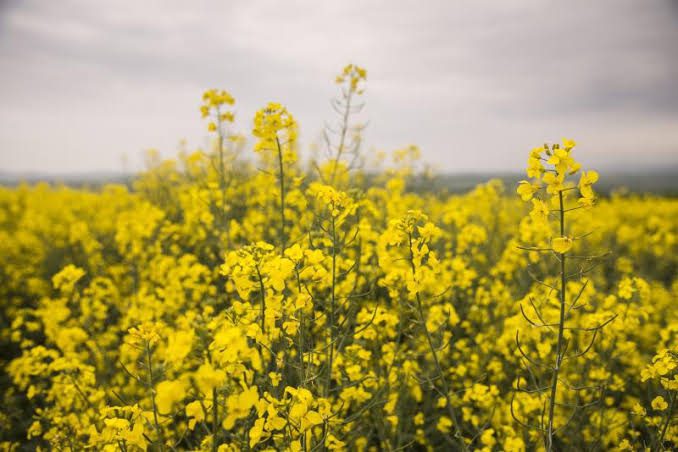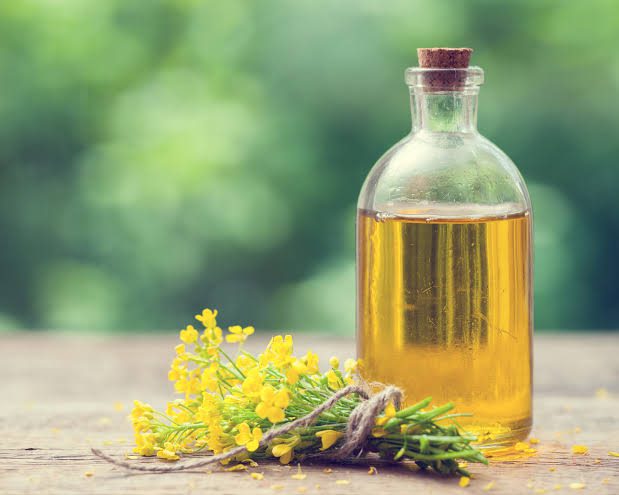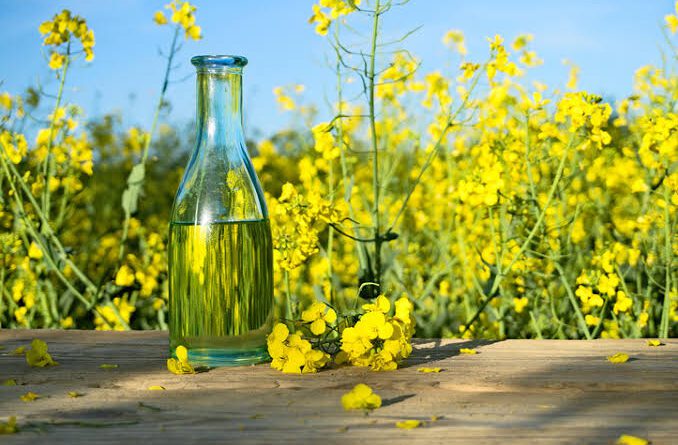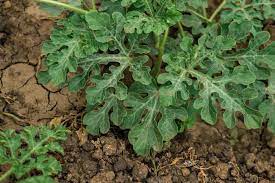Farming and Care Guide of Rapeseed
Rapeseed, also known as canola, is a versatile and widely cultivated plant with numerous uses. It belongs to the Brassicaceae family and is renowned for its bright yellow flowers. The scientific name for rapeseed is Brassica napus. This remarkable crop has become an integral part of agriculture and industry.
Rapeseed is primarily grown for its oil-rich seeds, which serve as a valuable source of vegetable oil. This oil is low in saturated fat and high in unsaturated fats, making it a heart-healthy option. Many households around the world use rapeseed oil for cooking and baking due to its neutral flavor and high smoke point.
Apart from its culinary uses, rapeseed has gained prominence as a biofuel feedstock. The oil extracted from rapeseed can be processed into biodiesel, providing an eco-friendly alternative to traditional fossil fuels. This aspect of rapeseed cultivation contributes to sustainable energy practices and helps reduce dependence on non-renewable resources.
The cultivation of rapeseed also plays a crucial role in crop rotation strategies. Farmers often include rapeseed in their crop rotation plans as it helps break pest cycles, improve soil structure, and reduce the risk of soil-borne diseases. The plant’s deep root system enhances soil fertility by drawing nutrients from deeper layers.
In addition to its agricultural significance, rapeseed has ecological benefits. The vibrant yellow flowers of rapeseed plants contribute to the beauty of landscapes and provide a rich source of nectar for pollinators such as bees. The cultivation of rapeseed supports biodiversity by fostering a habitat for various beneficial insects.
Rapeseed cultivation has evolved over time, with the development of improved varieties that are resistant to pests and diseases. This has increased the efficiency of rapeseed farming and boosted yields, ensuring a more sustainable supply of oil and other by-products.
Beyond its economic and environmental contributions, rapeseed has found applications in the field of research and development. Scientists are exploring the potential of rapeseed proteins for various industrial purposes, including in the production of bio-based materials and as a supplement in animal feed.
In addition, rapeseed stands as a multifaceted crop with widespread applications in agriculture, industry, and sustainability efforts. From its roots in traditional farming to its role in modern biofuel production, rapeseed continues to be a valuable asset with far-reaching impacts on our daily lives and the broader global landscape.
Read Also: Ocicat Cat (Felis catus) Description and Complete Care Guide
Farming and Care Guide of Rapeseed

Hate is a Guide to Rapeseed Farming and Care:
1. Site Selection: Choose a well-drained field with good sunlight exposure for rapeseed cultivation. Ensure the soil has a pH between 5.5 and 8.5 and is rich in organic matter.
2. Variety Selection: Select rapeseed varieties suitable for your climate and intended use (oil extraction, biodiesel production, or as a cover crop). Consult local agricultural extension services for recommendations.
3. Soil Preparation: Conduct a soil test to assess nutrient levels. Prepare the soil by plowing and harrowing to create a fine seedbed. Incorporate organic matter to enhance soil structure.
4. Planting: Sow rapeseed seeds at the recommended depth and spacing. Early planting is often beneficial, allowing the crop to establish before adverse weather conditions.
5. Watering: Provide consistent moisture during the germination and flowering stages. Monitor soil moisture levels and adjust irrigation accordingly. Rapeseed is sensitive to drought during these critical periods.
6. Fertilization: Apply fertilizers based on soil test results. Provide nitrogen in split applications, with a focus on the early growth stage. Adequate phosphorus and potassium are crucial for overall plant development.
7. Weed Management: Implement effective weed control measures. Consider pre-emergence herbicides and cultivate the soil when necessary. Mulching can also help suppress weeds and retain soil moisture.
8. Pest and Disease Control: Monitor rapeseed crops for pests such as aphids and flea beetles. Employ integrated pest management (IPM) strategies. Watch for diseases like blackleg and manage them with fungicides if needed.
9. Crop Rotation: Practice crop rotation to minimize disease pressure and maintain soil health. Avoid planting rapeseed in the same field consecutively.
10. Harvesting: Harvest rapeseed when the pods have turned brown, and seeds are firm and ripe. Use appropriate equipment to minimize seed damage during harvesting.
11. Post-Harvest Handling: Dry rapeseed to reduce moisture content before storage. Properly store harvested seeds in well-ventilated conditions to prevent mold and maintain quality.
12. Equipment Maintenance: Regularly maintain and calibrate farm equipment, especially during planting and harvesting. Well-maintained machinery contributes to efficient operations.
13. Record Keeping: Keep detailed records of planting dates, varieties, fertilization, and pest control measures. This information aids in decision-making for future seasons.
14. Continuous Learning: Stay informed about new rapeseed varieties, farming practices, and research findings. Attend workshops, engage with agricultural experts, and learn from other rapeseed farmers.
By following this guide, you can enhance the success of your rapeseed farming venture, promoting healthy crop growth and optimizing yield.
Read Also: Long Haired Cat Breeds Description and Complete Care Guide
Uses of Rapeseed

Here the Uses of Rapeseed:
1. Vegetable Oil Production: Rapeseed is a major source of vegetable oil, commonly known as canola oil. The oil is low in saturated fats and high in monounsaturated fats, making it a healthy choice for cooking, baking, and frying.
2. Biodiesel Production: The oil extracted from rapeseed is used in the production of biodiesel, serving as a renewable and environmentally friendly alternative to traditional fossil fuels.
3. Animal Feed: Rapeseed meal, a by-product of oil extraction, is used as a nutritious component in animal feed. It provides protein and other essential nutrients for livestock.
4. Cover Crop and Green Manure: Rapeseed is utilized as a cover crop and green manure. Its deep root system helps prevent soil erosion, improves soil structure, and adds organic matter when plowed back into the soil.
5. Industrial Applications: Rapeseed proteins are being explored for various industrial applications, including the production of bio-based materials and as a supplement in manufacturing processes.
6. Health Supplements: Rapeseed oil, rich in omega-3 fatty acids, is used in the production of health supplements. These supplements contribute to heart health and overall well-being.
7. Cosmetics and Personal Care Products: Some cosmetics and personal care products incorporate rapeseed oil for its moisturizing properties. It is often used in soaps, lotions, and hair care products.
8. Lubricants: The oil derived from rapeseed has lubricating properties, and it is used in the manufacturing of biodegradable lubricants, contributing to eco-friendly alternatives in certain applications.
9. Culinary Uses: Apart from oil extraction, rapeseed leaves are sometimes used in salads, and young plants are edible. However, consumption of rapeseed in large quantities may not be advisable due to certain compounds.
10. Horticultural Applications: Rapeseed oil has been used as a natural pesticide in horticulture to control certain pests. It serves as an eco-friendly option in integrated pest management strategies.
11. Landscaping and Ornamental Planting: The bright yellow flowers of rapeseed plants make them suitable for ornamental planting, contributing to landscaping and beautification of outdoor spaces.
12. Research and Development: Researchers continue to explore new uses for rapeseed components, from biofuel innovations to the development of bio-based materials, contributing to advancements in various industries.
Rapeseed, with its diverse applications, plays a significant role in agriculture, industry, and sustainable practices, showcasing its versatility and importance in various sectors.
Economic Importance of Rapeseed
Economic Importance of Rapeseed:
1. Vegetable Oil Production: Rapeseed is a major source of vegetable oil, contributing significantly to the edible oil industry. Canola oil, extracted from rapeseed, is widely used for cooking, frying, and baking, making it a staple in households and the food processing industry.
2. Biodiesel Production: The oil extracted from rapeseed is a key feedstock for biodiesel production. As the world seeks sustainable and renewable energy sources, rapeseed plays a crucial role in providing an alternative to conventional fossil fuels.
3. Agricultural Income: Rapeseed cultivation serves as an important source of income for farmers. The sale of rapeseed oil, meal, and other by-products contributes to the economic livelihood of agricultural communities.
4. Livestock Feed Industry: Rapeseed meal, a by-product of oil extraction, is utilized in the livestock feed industry. It is an essential source of protein for animals, including poultry, cattle, and swine, contributing to the growth and health of livestock.
5. Job Creation: The rapeseed industry, encompassing cultivation, processing, and distribution, creates employment opportunities. Jobs are generated in farming, oil extraction, processing plants, and related sectors, supporting rural and urban economies.
6. International Trade: Rapeseed and its products are significant commodities in international trade. Many countries export and import rapeseed oil, contributing to global economic interactions and trade balances.
7. Diversification of Agriculture: Rapeseed cultivation allows for crop diversification, reducing dependence on a single crop. This diversification can contribute to more stable agricultural economies and resilience against market fluctuations.
8. Biofuel Industry Growth: As the demand for biofuels increases, rapeseed’s role in biodiesel production becomes more economically significant. The growth of the biofuel industry creates new markets and economic opportunities within the energy sector.
9. Innovation and Research Investments: The economic importance of rapeseed stimulates investments in research and innovation. Efforts to improve crop yield, develop disease-resistant varieties, and explore new industrial applications contribute to advancements in agriculture and related industries.
10. Sustainable Agriculture Practices: Rapeseed’s ability to break pest cycles and improve soil health encourages sustainable agriculture practices. This can lead to long-term economic benefits by reducing the need for excessive pesticide use and promoting soil fertility.
11. Food and Consumer Products Industry: The use of rapeseed oil in various food products, including margarine, salad dressings, and snacks, contributes to the economic viability of the food and consumer products industry.
In summary, rapeseed plays a crucial role in various sectors of the economy, ranging from agriculture and energy to food production and international trade. Its economic importance extends beyond traditional farming, influencing job creation, technological innovation, and the sustainability of diverse economies globally.
Read Also: Healthy Snacks For Kids









